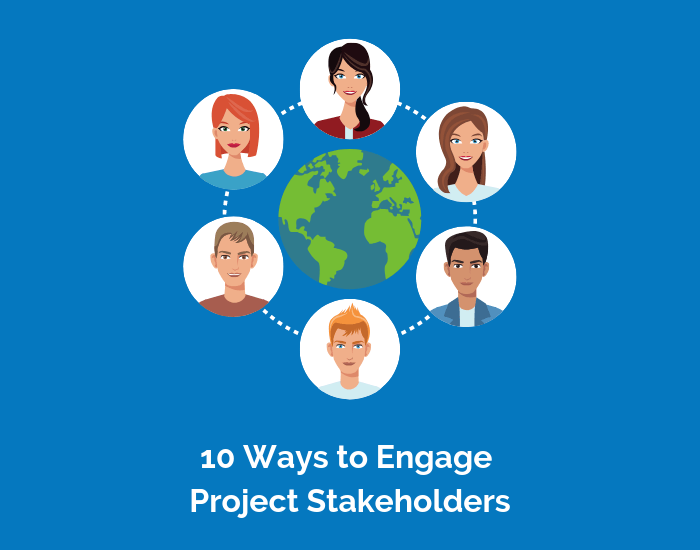Do you have a stakeholder engagement plan? Have you stopped to think about the diverse needs of your stakeholders? Which stakeholders have the most power and influence? When and how will you engage these people?

What is a Stakeholder Engagement Plan?
The stakeholder engagement plan is "a component of the project management plan that identifies the strategies and actions required to promote productive involvement of stakeholders in project or program decision making and execution (PMBOK® Guide – Sixth Edition, Page 723)."
Stakeholder engagement includes ways to attract and involve individuals, groups, and organizations who may be affected by a project or may affect the project.
Stakeholder Engagement Plan. A component of the project management plan that identifies the strategies and actions required to promote productive involvement of stakeholders in project or program decision making and execution.
– PMBOK® Guide – Sixth Edition –
Let’s look at some practical ways that you can better engage and influence your project stakeholders at the right times in your project lifecycle.
10 Ways to Engage Project Stakeholders
- Identify stakeholders early. You can’t engage stakeholders until you know who they are. As you are initiating your projects, start identifying your stakeholders. Additionally, create a project stakeholder register.
- Get stakeholders talking to one another. I invite key stakeholders to my initial project meetings as we are developing the project charter. I want to surface and resolve conflicts as soon as possible.
- Seek to understand before being understood. Steven Covey shared this principle years ago. It still holds true. Furthermore, people want to know that you really want to hear their perspective first.
- Listen, really listen. Part of understanding is making time to sit face-to-face, when possible, and truly listen. Ask probing questions.
- Lead with integrity. Meaningful engagement requires trust. Say what you mean; mean what you say. And then do what you said you would do.
- Engage your stakeholders in the estimates. Ask the people that will do the work for estimates. And help stakeholders to understand that there is greater uncertainty in the early estimates. Commit to providing refined estimates as your projects progress.
- Work WITH your team. The best project managers work with their stakeholders to break down their projects into deliverables and tasks. This helps everyone to have a better understanding of the project. Furthermore, stakeholders will more likely support a plan that they helped create.
- Manage expectations. Each of your stakeholders has expectations, sometimes false expectations. Working with your team will clarify many of these aspects of the project.
- Say thank you. The project managers I enjoy most know two simple words—thank you. When team members and other stakeholders complete activities, respond to emails and voicemails, make you aware of things you didn’t know, respond with thanks.
- Communicate, communicate, communicate. Ninety percent of a project manager’s job is communication. Develop and maintain a communications plan. Creative project managers minimize a potential communications breakdown by communicating through a variety of channels, not one or two.
Are You Actually Influencing Your Project Stakeholders?
I recently spoke with a project manager who works in a Project Management Office (PMO). Susan told me how people resist project management in her organization, a story that I've heard countless times.
When I asked, "What are you doing to get support and buy-in?" With a puzzled look, Susan said, "It's always been that way and I doubt it will ever change."
Whether you are leading a PMO, a program, or a challenging project, you may have resigned yourself and feel there's nothing you can do. I encourage you to develop a stakeholder engagement plan.
Identify and assess your stakeholders. Work with others to develop a plan to engage and influence the key stakeholders. And as Winston Churchill said, "Never, never, never give up."
BECOME A PMI-RMP®
Are you unsure what it takes to become a PMI Risk Management Professional (PMI-RMP®)? In this FREE mini-course, I share articles, videos, and a short exam to jumpstart your preparation. Why procrastinate any longer? Start today!
